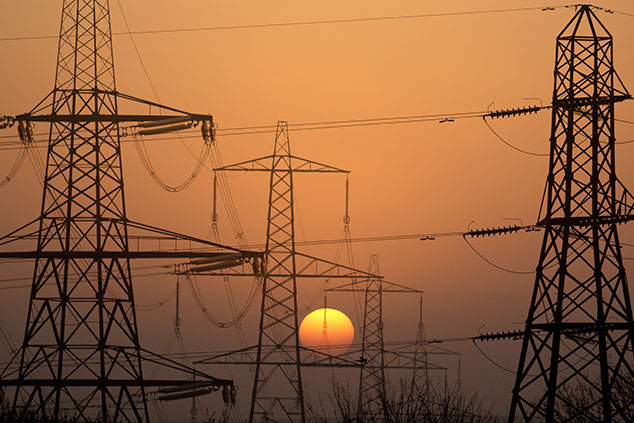
Energy may not be dominating the headlines at the moment, but many experts believe that, unless something is done, Britain faces looming shortages.
To look at how EU membership has affected UK energy policy, and how Brexit could change this, we’ve decided to turn to Clive Moffatt, one of the leading experts on the economics of the sector. Moffatt is head of consultancy and market research at Moffatt Associates, and has advised everyone from HSBC and GE to the EU Commission on energy. He currently heads up a coalition of UK energy companies that want to raise awareness of the looming problems.
The popular perception is that Brussels has always imposed regulation over the heads of an unwilling UK government. But this was not always the case. In the 1980s and 90s, “the UK energy market was regarded as the model for the rest of the EU”, says Moffatt. For example, Britain “led the way on de-nationalisation, the removal of price controls, the establishment of an independent transmission network, the launch of retail supply competition and the creation of an independent industry Regulator”. However, member states “have been reluctant to let energy policy slip from their grasp” so “the vision of a single energy market is very unlikely to be realised”.
How the EU has shifted the goalposts
Over the past two decades, European policy has shifted from liberalisation to focusing on cutting carbon emissions. In pursuit of these targets, “member states have often pursued individual and often conflicting policies such that across the EU, markets have ceased to function”. Meanwhile, “a myriad of subsidies and penalties has led to a huge hike in energy costs for all consumers”. Indeed, Moffatt thinks that the “ambitious” targets to cut CO2 emissions by 80% from 1990 levels by 2050 that were agreed by all EU governments in 2008, “may need to be postponed and much greater emphasis placed on ensuring security of supply and minimising the cost”.
As well as setting unrealistic targets, Brussels has tilted the playing field towards wind and solar, which have low marginal costs. In practice this means that, “the wholesale electricity market no longer generates high enough prices over a long enough timespan to support any new investment in gas or nuclear generation”, argues Moffatt. As a result, “no new generation of any kind can be built without some form of government intervention”. In contrast, says Moffatt, Brexit will “allow the government to adopt a more cohesive and longer term approach to the question of subsidies and CO2 pricing which is in the best of interests of the environment, industry and consumers”.
The situation is further complicated by state aid regulations, “which mean that governments cannot distinguish between different types of generation or be seen to favour new over old technology”. Under the current system, old gas, nuclear and coal plants get generous payments for shutting down, but cleaner and more efficient gas plants still find it uneconomical to produce enough to make up for the lost output and “keep the lights on when the wind is not blowing or the sun is not shining”. If these rules were relaxed, Moffatt believes, the UK would be able to invest in enough diesel and gas generation to fill the gaps.
But it’s not all Brussels’ fault
Of course, Brussels can’t be blamed for everything. While it is an “inescapable fact” that renewable energy is more expensive that conventional sources, the UK government has chosen to push most of the cost onto industry, rather than follow Germany, which has shielded its firms. Still, Brexit will allow the government to devise “a fairer and longer term period of adjusting to a low carbon economy” by reforming the capacity market and “placing less emphasis on direct subsidies for renewable energy”. Combined with tax breaks for heavy industry and poorer consumers, this would “help restore the role of the market in energy policy, an approach that has to date been constrained by EU rules” says Moffatt.
Moffatt accepts that by itself, Brexit won’t solve our problems, as the struggle “to square the circle of low emissions, security of supply and affordability will continue”. Indeed, “the EU Single Energy Market sets down cross-border trading codes and standards and it would be sensible to keep these in place so that gas and power can be traded on the same basis either end of the pipeline”. If we leave the single market “then alternative trading arrangements will need to be put in place with Norway, Belgium, Ireland, France and the Netherlands”. Similarly, any post-Brexit immigration restrictions must not worsen the current shortage of engineers.
What leaving the EU will do is “remove the current restrictive measures and release our ability to devise the best mix of policies” including needed reforms that “restore the operation of the UK energy market”. There is no reason to be pessimistic about our ability to turn things around, says Moffatt, when you remember that we originally “led the way with energy market reform”.